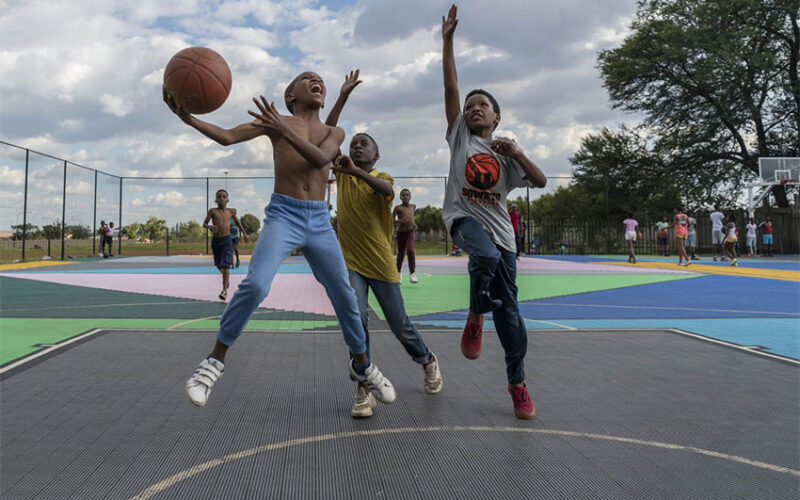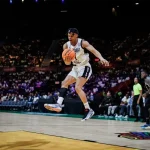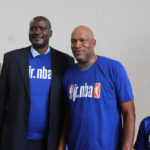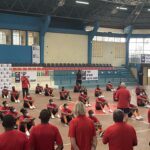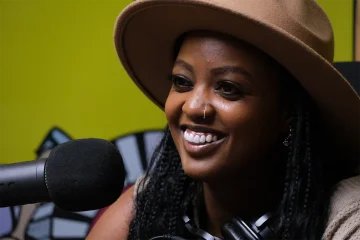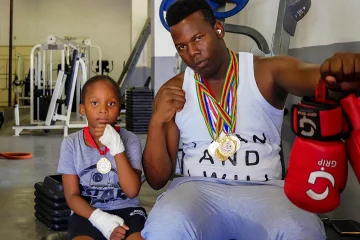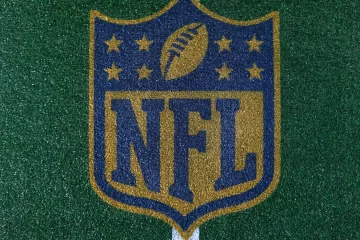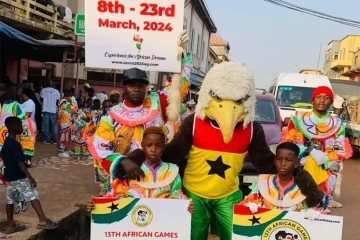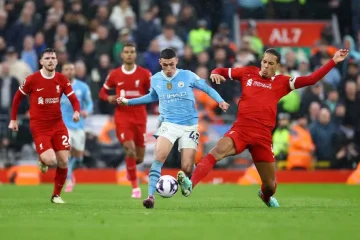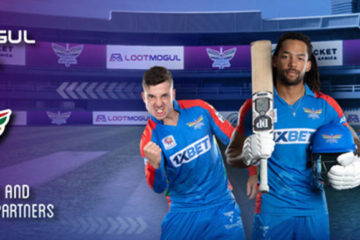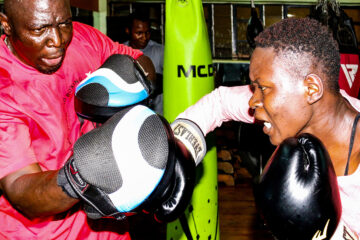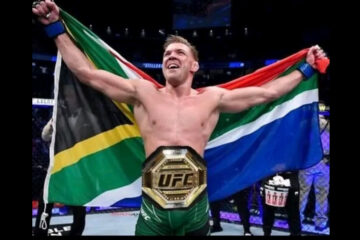LEE NXUMALO
BASKETBALL, once the fastest-growing sport in South Africa, now hardly has recognisable leagues or talents. A group of campaigners have come together to get it thriving and growing again.
He increased popularity of the National Basketball Association (NBA) on the global front and the presence of African-born players in the league has given basketball cultural currency among the continent’s youth.
Even though basketball had a presence in South Africa since apartheid, its popularity reached its peak only in the late 1990s. At one point, it was considered the fastest-growing sport in the country and on track to becoming one of the biggest. But maladministration of the sport since the mid-2000s has left South Africa lagging behind the rest of the continent.
To change this, a new crop of young people are taking matters into their own hands and establishing organisations whose aim is to take the sport to the next level in the country.
Within the last decade alone, several clubs and academies have been formed to develop and nurture the skills of young and talented players. The NBA launched The Royal Bafokeng Junior programme in the North West in 2011. It aims to encourage youth participation in basketball, and to develop the technical skills of children early and engage them in consistent competition while teaching them important life skills. Spearheaded by Kgolagano Rakhudu, the organisation is connected to 114 teams from 44 schools and has served over 10 000 girls and boys.

“One of the things that we emphasise is the life skills that are learned when you play sports and develop the players holistically. That’s a big element that we focus on because not every player is going to make it. We want the kids to learn as much as they can and use the sport to get an education or push them to become part of the ecosystem – whether they pursue careers as a doctor, lawyer or do marketing in sport. We’re opening it up so that they can see more outside of just playing the sport,” said Rakhudu.
Monwabisi Dlamini, co-founder of Soweto Basketball Academy, uses the same mantra to run his programme. Just like Royal Bafokeng, the academy focuses on the needs of children outside the realm of basketball. They have an after-school initiative in partnership with Yellow Cover South Africa and Diakonia Aids Ministry that provides academic assistance and feeding schemes to children.
The organisation has been in operation since 2013 and accommodates 350 children, between the ages of eight and 18. They have received support from the Phutanang Youth Trust and from NBA superstar Carmelo Anthony, who donated two basketball courts in 2018. And, in partnership with the education department, the academy launched the first Soweto Primary Basketball League in early 2020.

The beginning of success
Royal Bafokeng has accomplished a lot since it opened its doors. It won the 2017 Sport Development Programme of the Year award at the South African Sport Industry Awards. Rakhudu was listed in the 2020 Mail and Guardian’s 200 Young South Africans list. Since 2016, the camp has produced five players who are currently in US high school programmes with basketball scholarships.
Soweto Academy also has its fair share of accomplishments. They have won multiple championships and tournaments, including the prestigious 2019 American International School Under-16 Basketball tournament (both girls and boys) and the 2019 School Summer Games Tournament for Under-18 boys. They also made it to the knockout stage of the St John’s International Tournament. Two years ago, their Under-16 girls’ team ranked the top side in the country in that age group.
These are just a few examples of the effective grassroots programmes that exist across the country – particularly in major cities like Johannesburg, Durban, Gqeberha (formerly Port Elizabeth) and Cape Town. The next challenge is to get more programmes in township and rural communities where there is no access to equipment or courts.
Both Dlamini and Rakhudu recognise that development of the sport at grassroots level is one piece of the puzzle. Alone, it is not enough. They have expressed a desire to see viable options to take basketball further when kids reach adulthood.
“There’s so much potential. And I’m encouraged by the work that we do. Every time I meet new players, I see the talent. Every time I go around tournaments in the country, it confirms that the talent is there and I can see our players can play. At home, structures need to be in place so that these kids have a pathway into basketball,” said Rakhudu.
Dlamini agrees: “There [are] a whole lot of kids that have talent and skill. Basketball can be a means to take kids out the street and get them to do something constructive. The plan is to make sure that basketball continues to grow at a primary school level and elevate it from there. We need to give our kids more options. There [is] a lot of unearthed talent in Soweto and in the country.”

Wheelchair basketball
Wheelchair Basketball South Africa is a very good example of what is possible and what the sport as a whole in the country should aim for.
The men’s wheelchair basketball national team is currently the most successful national side of the sport. In more than 20 years of existence, the team has participated in three Paralympics events: Sydney 2000, Beijing 2008 and London 2012. Their best result was in Beijing, where they finished ninth.

The team has also competed in other international basketball tournaments. Most recently, they won the 2019 Lwini Cup in Angola. In the 2018 Fazza Tournament in Dubai they placed fifth. The women’s side, Amawheelagirls, has also produced good results on the world stage. Despite being formed late, the team made the finals of the 2020 Africa Wheelchair Basketball Championship and took home a silver medal.
There has also been a concerted effort to improve provincial basketball for women. Despite the ongoing Covid-19 pandemic and its lockdowns, the National Women’s Wheelchair Basketball League recorded the highest participation in its seven-year history.

“I think we’ve been doing very well and we have come far with the sport. The efforts that we have put over a number of years have produced positive results. I would credit the success on [the] national and provincial side to professionalism and accountability,” said Sibongile Fondini, board member of the Wheelchair Basketball National Federation and head of transformation and ethics at Wheelchair Basketball South Africa.
The focus of Wheelchair Basketball South Africa is to continue to produce results on the global front and to strengthen the programmes they have on the ground floor. Part of their short-term objectives is to develop competition structures on a scholastic level, provide more resources and improve the skills of people operating in the ecosystem of basketball. Long-term goals include providing schools that serve disabled children with access to equipment and facilities – particularly in underserved areas in Limpopo, Mpumalanga and Northern Cape.

Provincial and club basketball in disarray
The decline of club, district and provincial basketball is one of the major reasons the country’s competitiveness in the sport is poor. Kimathi Toboti, former coach of the South African women’s national basketball team, believes that the dysfunction is due to a lack of coordination and cohesion between provinces.
“Districts and provincial associations need to have programmes that have direction and goals. If you don’t have anything in place, then associations will have their own different things. So, Limpopo will do their own thing and KwaZulu-Natal will do their own thing. How does that help the country? It doesn’t. When there is direction, organisations can align their plans to the national programme,” Toboti said.
Four provinces are currently under administration: KwaZulu-Natal, Northern Cape, Gauteng and Mpumalanga. Hale Bookholane, national referee and manager of the Jozi Nuggets, considers this a sign of trouble.

“If a province is under administration, you might have an administrator who may not understand basketball in the province. Any decisions taken by that administrator may not be in the best interests of the people on the ground,” she said.
The only semi-professional and competitive basketball league that currently exists on a cross-provincial level is the Basketball National League South Africa (BNLSA). It consists of 11 teams, and their games are broadcast on Supersport. The league was known as the Premier Basketball League when it was first formed in 1994.
In its heyday, the league had multiple sponsors and attracted international players and coaches. In 1998, Egoli Magic (one of the league’s teams) qualified to play in the International Basketball Federation (FIBA) African Club Championship, for example, marking the first time a South African club qualified for the competition.
“In this country, professional basketball players were making more than PSL players. Basketball was seen as the fastest-growing sport at the time and a legitimate threat to soccer,” said Quintin Denyssen, former South African National Basketball team player and current basketball analyst at Vision View Sport Radio.
“When I was signed [as a basketball player], we had multiple sponsors and we were covered by the SABC. There were national programs running at the time and, even when the professional league ceased to exist, there were other vehicles that existed. It was a ripe time for basketball,” continued Denyssen.

The Premier Basketball League was disbanded in 1999 after a lawsuit. The league tried to make a comeback in 2006, and had sponsorship from Sprite. Games were televised on Supersport. But it only ran for a year before it was dissolved again.
Despite that, South Africa still had an active and strong basketball culture in the early 2000s. There were major basketball activations like the ESPN Celebrity Games and the AND1 Basketball Tour. But maladministration has derailed the sport.
“Once you have infighting and sponsors get wind of the fact that the federation and the professional league no longer gets along, they will pull out. And that was the beginning of the end for the golden era of basketball in South Africa,” says Denyssen.
The current iteration came back into the fold in 2013 under different management. They introduced a women’s division last year and the league runs for three months of a year.
There have been multiple issues between players and the league that have been brought to light. According to Denyssen, a lot of players have told him about problems with contracts, where they are either not honoured or they are incomplete. There have also been problems that have arisen due to late or delayed payments to players.
“It’s no secret!” said Denyssen. “They do not have the best players because they have lost confidence over a period of time. If we’re being honest, players can’t even get by. I don’t think the money they make covers the petrol to and fro practice and to and fro games but they are expected to give a top-tier performance.”
Compliance problems
Another problem with the BNLSA is that it is not in compliance with FIBA’s regulations. It is a league without any tiers, relegation or advancement system. Because of this, teams in the league cannot compete on the continental and international front.
The attenuation of provincial basketball impacts what happens on the national level. Both Denyssen and Toboti asserted that in order for the national teams to become more successful, players need more consistent participation in provincial and club competition.
“If we want to fix basketball in South Africa, districts and provinces need to be in order. In order to have a successful national programme, you need to have a successful provincial programme,” said Toboti.
The 2019 Eminent Persons Group (EPG) for transformation in sport offered a damning account on the federation of Basketball South Africa (BSA). In Part 1 of the 264-page document, it makes it clear that the federation has provided little to no data for the report. Of the information that was provided, the committee concluded that BSA only met 34% of the self-set targets and did not achieve the 50% pass rate as outlined by the terms of the memorandum of understanding with the sport and recreation department and the South African Sports Confederation and Olympic Committee.
The report also expressed concern over the lack of participation at school and provincial level; the lack of medical, sport and support services; the indifference to gender equality, and the quality and extent of coaching referee structures.
The author of the report writes: “The quality of basketball’s data input since inception of the transformation project has been well below acceptable. It has been consistently worse than any of the participating federations over the past three years and of little use from a planning perspective. The absence of data may be a part of an unfortunate set of symptoms reflecting an organisation faced with deep-seated and disturbing governance and dysfunctionality challenges.”
Sanele Mthiyane, President of BSA, acknowledges some of the shortcomings of the organisation. He expressed disappointment at not being able to create a more uniform structure between members, administrators, coaches and players.
“Because of the internal issues within provinces, they were not able to submit enough information and that is why we got that kind of report. This year, we have started the process so that the provinces can provide the necessary information that the EPG requires. Everybody is on board and they understand the consequences for not being compliant with the EPG,” said Mthiyane.
This is not the first time the federation has received an unfavourable assessment of their performance. The 2013 Parliamentary Monitoring Group (PMG) report painted a dim picture of the financial health of the federation under the previous administration. PMG found financial statements from 2011 to 2013 that showed that about R5.5 million was owed to creditors, many of which were small businesses. There was also an outstanding debt to the South African Revenue Service. In 2015, R2 million allocated from the National Lottery for basketball development programmes disappeared. When the current administration was installed, they launched a forensic investigation into the mishandling of funds.
However, BSA has not released any financial statements since that investigation. Mthiyane said that they did not have the funds to appoint auditors since 2016. He said that the outstanding financial reports will be made available on the BSA website. He did not provide a timeline for when the relevant material would be collected.
Problems visible in the results
The South African men’s basketball team currently places 125th out of 165 countries registered under Fiba. The last time they competed in an international competition was at the 2017 AfroBasket tournament where they lost all three games and finished 15th overall. They got knocked out in the group stages. The team was eligible for the World Cup qualifiers but could not compete due to BSA’s financial constraints.
The women’s national basketball side currently ranks 106th out of 124 countries. The last time they qualified for an international competition was for the 2015 AfroBasket tournament where they lost five games and got ousted in the opening rounds.

Frustrated with the status quo of basketball, a group of individuals that have been involved in the sport have created an online movement called #FixBasketballSA. The movement is led by Bookholane, Toboti, Emma Ledwaba, Lebesa Selepe, Letha Zulu and Modiegi Mokoka. It has garnered some traction on Twitter and the issues they highlight have been discussed by certain media outlets. Their demands are for good governance, transparency and accountability from the federation.
The movement made its voice heard after BSA held an annual general meeting (AGM) in December that they deemed unconstitutional because the members present were not elected officials.
“We want things to be done by the book and we want activity to start happening. The mandate of Basketball South Africa was never to be investigators of money, their mandate was to make sure that basketball happens in the country and it’s not happening,” said Bookholane. “What we need to start seeing now is programmes, a plan and activity across the board.”
Mthiyane denies that the AGM is unconstitutional and asserts that the arrangement of the meeting was above board. According to him, the delegated members of BSA as well as associated members and provincial heads were present. In the meeting, an action plan was set for the upcoming year. Another important milestone that BSA has set is to elect a new National Executive Committee and to do it within the next three months. According to Mthiyane, the election was supposed to happen last year but that was derailed due to Covid-19.

In response to the #FixBasketballSA campaign, Mthiyane said: “We have a line of association and accountability. Our objective is to deliver the basketball to this country and it is not concerned with any other [rogue] organisation. All the people have a responsibility to go to their clubs, to go to their local municipality and to be in their district and subsequently be recognized in their provinces. That is the line of recognition in sports in this country and in basketball. We recognise that only.”
In the meantime, the sport remains in inertia. Coaches and players seeking to forge a career in basketball have to seek opportunities in other regions in Africa that have a strong basketball culture. It is a choice between that and a move to leagues in America or Europe.
“If you want to be a professional, leave the country!” Bookholane said. “Go somewhere else. There are a couple of players in the States in various leagues. There’s no pathway for players and coaches in South Africa.”

What does the future hold?
Getting basketball on the right track during a pandemic is a difficult task – especially with the changes in restrictions and the uncertainty around participating in international tournaments. Those with a passion and vested interest are doing what is in their capacity to grow the game anyway.
“I think what gives me hope is the number of former national team coaches and players who have the same vision to fix basketball. It might take us two years or three, but we can get basketball back to where it needs to be,” said Toboti. “It’s people on the ground trying to make things happen to get basketball in a good space.”
Denyssen adds: “Right now, we are unified as we have ever been in terms of our vision and our mission. Now it is just a question of whether people can actually put it together.”

